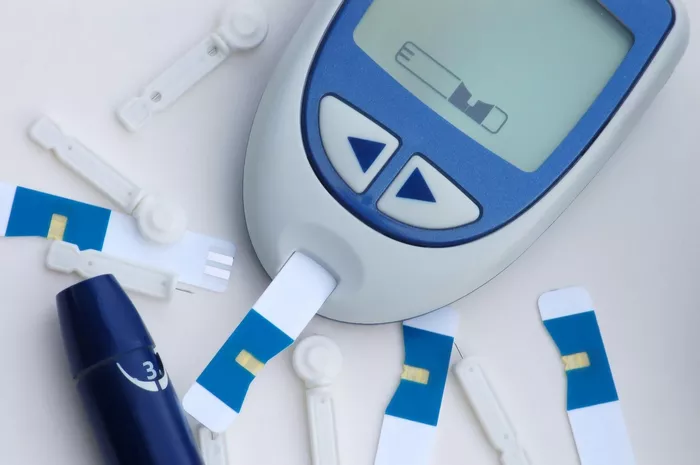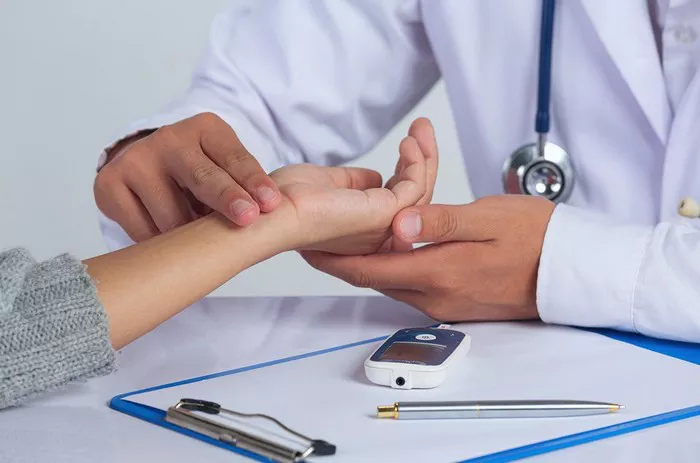Hypoglycemia, characterized by abnormally low blood glucose levels, is a common complication in individuals with diabetes mellitus, particularly those receiving insulin or certain oral antidiabetic medications. While mild to moderate hypoglycemia can typically be managed through timely intervention with glucose-containing substances, profound hypoglycemia poses a significant threat to systemic homeostasis and can lead to severe complications, including shock. In this comprehensive article, we explore the physiological consequences of profound hypoglycemia, elucidate its potential to induce shock, and discuss strategies for prevention, recognition, and management.
1. Understanding Profound Hypoglycemia:
Profound hypoglycemia is defined as severe hypoglycemia resulting in neuroglycopenia, characterized by impaired brain function and altered consciousness. It typically occurs when blood glucose levels fall below critical thresholds (<40 mg/dL or <2.2 mmol/L) and can manifest as confusion, disorientation, loss of consciousness, seizures, or coma. Profound hypoglycemia is considered a medical emergency and requires immediate intervention to prevent irreversible neurological damage or death.
2. Physiological Consequences of Profound Hypoglycemia:
Profound hypoglycemia elicits a cascade of physiological responses aimed at restoring euglycemia (normal blood glucose levels) and preserving vital organ function. These responses are orchestrated by the autonomic nervous system, counterregulatory hormones, and neuroendocrine pathways, including the hypothalamic-pituitary-adrenal (HPA) axis and the sympathetic-adrenal-medullary (SAM) axis.
- Neuroglycopenic Symptoms: Neuroglycopenic symptoms of profound hypoglycemia result from impaired glucose delivery to the brain, leading to neuronal dysfunction and altered mental status. Symptoms may include confusion, dizziness, weakness, blurred vision, difficulty concentrating, slurred speech, and loss of consciousness. Severe neuroglycopenia can progress to seizures, coma, or brain injury if left untreated.
- Autonomic Responses: In response to hypoglycemia, the autonomic nervous system initiates a series of physiological responses to counteract the decline in blood glucose levels. These responses include sympathetic activation, characterized by increased heart rate, palpitations, diaphoresis (excessive sweating), tremors, and feelings of anxiety or agitation. Parasympathetic activation may also occur, leading to symptoms such as hunger, nausea, and pallor.
- Counterregulatory Hormones: Counterregulatory hormones, including glucagon, epinephrine (adrenaline), cortisol, and growth hormone, play a crucial role in glucose homeostasis and the response to hypoglycemia. Glucagon is released from pancreatic alpha cells in response to low blood glucose levels and stimulates glycogenolysis (breakdown of glycogen) and gluconeogenesis (production of glucose) in the liver, raising blood glucose levels. Epinephrine is released from the adrenal medulla and exerts rapid effects on the cardiovascular system, increasing heart rate, cardiac output, and peripheral vasoconstriction to maintain blood pressure and tissue perfusion.
3. Potential for Inducing Shock:
While profound hypoglycemia itself is not a form of shock, it can precipitate various types of shock through its effects on systemic hemodynamics, metabolism, and organ function. The most commonly encountered types of shock associated with profound hypoglycemia include:
- Hypovolemic Shock: Profound hypoglycemia can lead to hypovolemic shock, characterized by inadequate tissue perfusion and oxygen delivery due to a decrease in circulating blood volume. Hypoglycemia-induced diaphoresis, tachycardia, and peripheral vasoconstriction can result in fluid shifts from the intravascular compartment to the extravascular space, leading to relative hypovolemia and decreased preload. Additionally, hypoglycemia-induced neurogenic symptoms, such as confusion, weakness, and altered mental status, may impair the individual’s ability to recognize and respond to fluid deficits, further exacerbating hypovolemia.
- Distributive Shock (Neurogenic Shock): Profound hypoglycemia can also precipitate distributive shock, such as neurogenic shock, characterized by widespread vasodilation, decreased systemic vascular resistance, and inadequate tissue perfusion. Hypoglycemia-induced sympathetic activation and catecholamine release initially lead to peripheral vasoconstriction and increased cardiac output in an attempt to maintain blood pressure. However, prolonged or severe hypoglycemia may result in sympathetic exhaustion, impaired baroreceptor reflexes, and vasodilatory shock, manifested by hypotension, bradycardia, and peripheral pooling of blood.
- Cardiogenic Shock: In rare cases, profound hypoglycemia can precipitate cardiogenic shock, characterized by impaired myocardial contractility and cardiac output due to decreased substrate availability and energy production. Hypoglycemia-induced depletion of myocardial glycogen stores, impaired myocardial metabolism, and decreased cardiac efficiency may contribute to myocardial dysfunction and pump failure. Additionally, hypoglycemia-induced arrhythmias, such as ventricular tachycardia or fibrillation, can further compromise cardiac function and precipitate cardiogenic shock.
4. Prevention and Management Strategies:
Preventing and managing profound hypoglycemia and its potential complications require a multifaceted approach involving patient education, glycemic monitoring, individualized treatment regimens, and prompt recognition and intervention. Key strategies include:
- Patient Education: Educating individuals with diabetes about the signs and symptoms of hypoglycemia, risk factors, and self-management strategies is essential for preventing and mitigating the impact of profound hypoglycemia. Emphasizing the importance of regular blood glucose monitoring, carbohydrate counting, meal planning, and medication adherence can help individuals recognize and address hypoglycemic episodes promptly.
- Glycemic Monitoring: Regular monitoring of blood glucose levels, both through self-monitoring and continuous glucose monitoring (CGM) systems, is essential for detecting and preventing hypoglycemia. Individuals at high risk of hypoglycemia, such as those receiving insulin or sulfonylureas, should monitor their blood glucose levels frequently, especially before meals, exercise, and bedtime, to adjust insulin doses and prevent hypoglycemic episodes.
- Individualized Treatment Regimens: Tailoring diabetes treatment regimens to individual patient needs, preferences, and lifestyle factors is critical for optimizing glycemic control while minimizing the risk of hypoglycemia. Healthcare providers should consider factors such as age, comorbidities, renal function, dietary habits, physical activity levels, and medication adherence when designing treatment plans for individuals with diabetes.
- Prompt Recognition and Intervention: Prompt recognition and intervention are paramount in managing hypoglycemic episodes and preventing complications. Individuals experiencing symptoms of hypoglycemia should promptly consume fast-acting carbohydrates, such as glucose tablets, fruit juice, or glucose gel, to raise their blood glucose levels. Glucagon emergency kits should be readily available for individuals at high risk of severe hypoglycemia or impaired consciousness, allowing for prompt administration by caregivers or bystanders in case of severe hypoglycemic events.
- Emergency Medical Care: Severe hypoglycemia requiring emergency medical care should be treated promptly to prevent complications, including shock and irreversible neurological damage. Healthcare providers should assess the individual’s vital signs, blood glucose levels, and mental status, initiate appropriate resuscitative measures, and administer intravenous dextrose solutions or glucagon as needed to restore euglycemia and prevent further deterioration.
5. Conclusion:
In conclusion, profound hypoglycemia poses a significant threat to systemic homeostasis and can lead to severe complications, including shock, if left untreated. Understanding the physiological consequences of profound hypoglycemia and its potential to induce shock is essential for healthcare providers, caregivers, and individuals with diabetes to recognize, prevent, and manage hypoglycemic episodes effectively.
By implementing comprehensive strategies for prevention, glycemic monitoring, individualized treatment regimens, and prompt recognition and intervention, healthcare providers can help mitigate the impact of profound hypoglycemia and reduce the risk of complications, including shock, in individuals with diabetes. Continued research, education, and advocacy efforts are essential for raising awareness of hypoglycemia-related complications and improving outcomes for individuals living with diabetes.

























